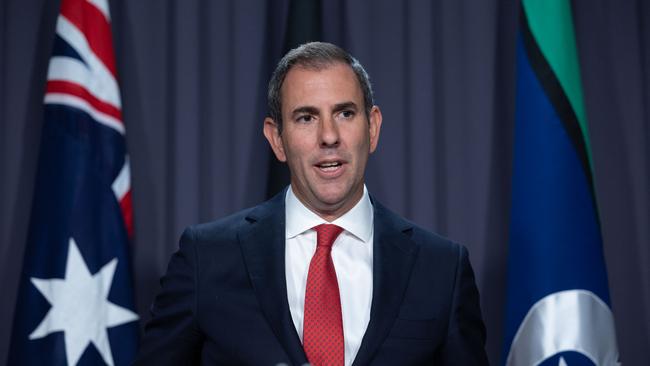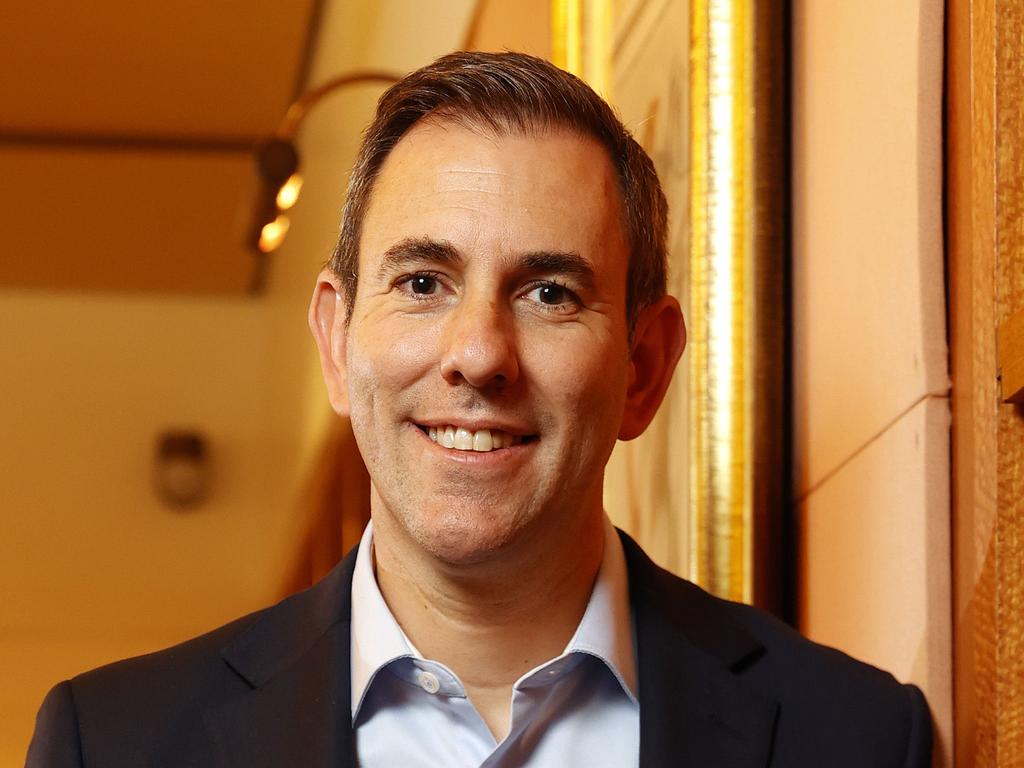Chalmers makes a small splash in our shallow politics
The Treasurer’s essay about changing capitalism was more about shoring up his political support as a future Labor leader rather than redrawing the global economic system.

The debate over a voice to parliament has heated up considerably. Perhaps more significantly, problems in Indigenous communities in the Northern Territory have taken centre stage: domestic violence, assault and theft, the pictures we’ve seen are utterly horrific. There has been much discussion about the role of politicians and government when it comes to solving what the Prime Minister has rightly described as systemic generational challenges.
The balance between interventionist policy settings and the need for local communities to step up and be accountable will define what comes next.
Most Australians, while horrified by what they’ve seen, aren’t surprised.
The Robodebt royal commission in Brisbane is back under way, with former Morrison government ministers taking to the witness box. This issue hasn’t been front and centre, but it will by the time the commission’s findings are released. Once the political pointscoring is out of the way, the bigger questions of welfare reform will need addressing.
And then last month, the new Treasurer penned an economic thought piece in The Monthly, titled: Capitalism after the crisis. On cue, right-wingers condemned Jim Chalmers’ words as dangerous and all too revealing about how the Albanese government might choose to shift Australia away from the economic liberalism that has largely had bipartisan consensus in recent decades.
I can never understand why a politician writing a somewhat lengthy (6000 words) thought piece is so controversial. Perhaps because it happens so little. Our political leaders have largely become unqualified elected bureaucrats, lacking the attributes leadership theory scholars discuss; functionaries either captured by their departments or aloof to their recommendations. Or just interested in political communication and parish-pump politicking.
Chalmers is attempting to assert himself as a cut above that pack. While he can shake hands and kiss babies with the best of them, Chalmers also holds a doctorate in political science. His dissertation took in leadership theory: a study of Paul Keating.
The article highlights he is more a disciple of Wayne Swan (whom he worked for) than Keating, but there isn’t enough meat on the bones of the piece to definitively make that determination.
The piece can be examined for its economic messaging as well as its political purpose. The former has captured the attention of critics. While I can see why – he challenges economic liberalism and what he describes as “a negative form of supply-side economics” – the real purpose is political.
Chalmers is ambitious; nothing wrong with that. Once upon a time it would have been enough for the factional right-winger from Queensland to win over his factional colleagues in other states to secure the numbers to one day lead the Labor Party. These days the party rules require him to also win over Labor’s membership, which has a 50 per cent say in leadership showdowns.
When Bill Shorten narrowly defeated Anthony Albanese for the Labor leadership after the 2013 election defeat of Kevin Rudd, he almost lost because the membership voted for Albanese at a disproportionate rate of 60 to 40 per cent.
After the shock 2019 election, Albanese quickly emerged uncontested as the sole leadership candidate because right-wingers soon realised he’d added to his parliamentary pool of numbers such that no one could beat him.
Chalmers has work to do to lift himself to becoming the factional Right’s consensus candidate, but that’s the easy part of his leadership equation of the future. Winning over a disproportionately left-wing membership base – far further to the left than the general population, which is a separate electoral challenge – requires more focused effort. The Monthly article is his first serious foray into appealing to this cohort.
The piece sticks it to the former conservative government, floats a rethink of the relationship between politics and business, discusses the role of government at the vanguard of picking winners, extols the thinking of leading economist Mariana Mazzucato (who sits a long way from the economic centre), and manages to delicately use a lot of words to say very little.
I’ve seen leading economists criticise the piece, including on this final point. But politically saying very little yet sounding thoughtful was an A-grade win for Chalmers’ purposes. Had he been more policy-specific, it would have given the opposition something to hold on to. Instead, the most it will be able to do when parliament resumes is mock the Treasurer for being thoughtful – as those doing so unwittingly highlight their opposite status.
If anyone wants to more seriously consider the substantive premise of Chalmers’ economic argument, they should read From Free to Fair Markets: Liberalism after Covid-19, by economics professor Richard Holden and law professor Rosalind Dixon.
The use of the term “liberalism” shouldn’t turn off anyone remotely close to the political centre. Unless nothing short of a revolution in the way our systems operate is your goal, the pair challenge how government can better serve those it represents in the post-Covid world. Holden gained his economics doctorate from Harvard; Dixon is director of the public law centre at UNSW, and an expert on federation reform. The book is published by Oxford University Press.
This is where a serious discussion on economic policy settings starts. Read the Chalmers essay for fun.
For anyone still concerned that Chalmers’ purpose was more than a political play to Labor’s membership base, read chapter nine of Joseph Stiglitz’s 2010 book, Freefall: Free markets and the sinking of the global economy. While the Nobel laureate’s book isn’t Australia-focused, that chapter (titled Reforming Economics) should sufficiently scare advocates of the status quo in a way the Chalmers essay should not. I wonder if he read it; there are more similarities than you might expect.
People need to remember that Labor has been out of power for 20 of the past 26 years. The brief interlude of Rudd and Julia Gillard was just that, brief.
Labor’s time out of power goes close to matching the wilderness years ahead of Gough Whitlam’s 1972 win.
Of course we need to hear from senior Labor figures about their philosophical values and how they might choose to govern differently to the other side of politics.
While I think Chalmers’ primary purpose is a play to his party’s membership so that in the years ahead he stands as the natural successor to Albanese, perhaps I’m too cynical and all the Treasurer wanted to do was start a debate about reform and change. Of itself, that deserves praise. I’ll dig deeper, analysing the content of what such reform and change might look like when it’s not too shallow to dig.
Peter van Onselen is a professor of politics and public policy at the University of Western Australia and Griffith University.







There is a lot to digest ahead of the return of parliament on Monday. On Tuesday, interest rates will go up again, the ninth consecutive rate rise since last year’s election campaign. The only relief came in January, simply because the Reserve Bank board didn’t meet then. The economic pain high inflation and rising rates are causing will be a key feature of 2023.